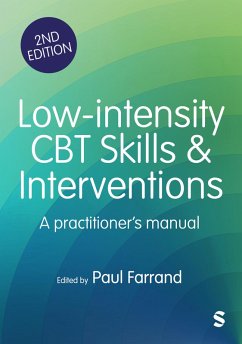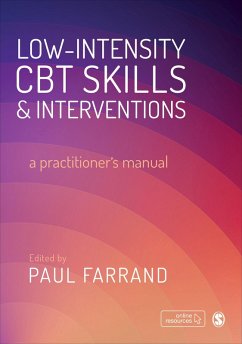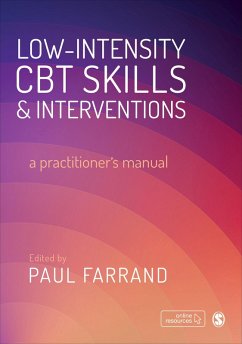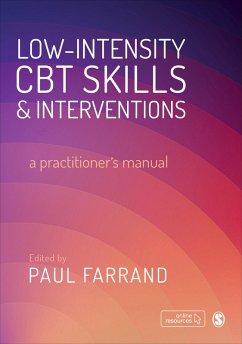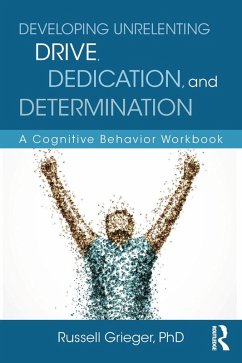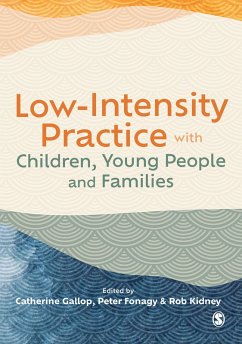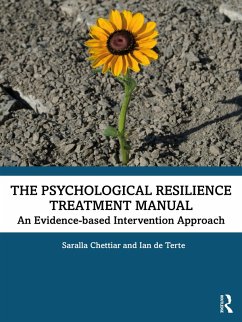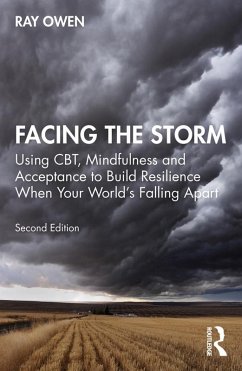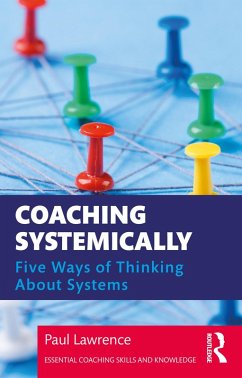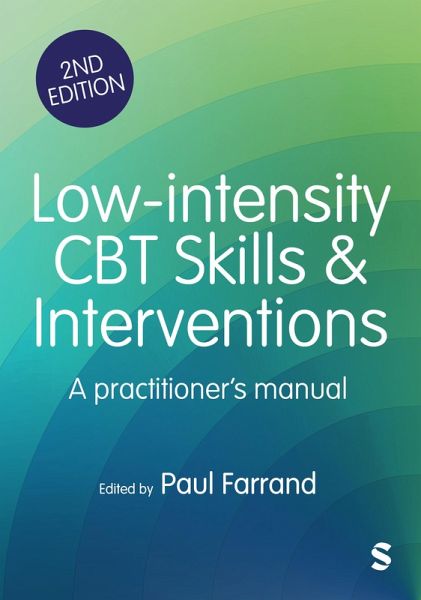
Low-intensity CBT Skills and Interventions (eBook, ePUB)
a practitioner's manual
Redaktion: Farrand, Paul A.
Versandkostenfrei!
Sofort per Download lieferbar
82,95 €
inkl. MwSt.
Weitere Ausgaben:

PAYBACK Punkte
41 °P sammeln!
This book takes you step-by-step through the Low-intensity CBT interventions, competencies and clinical procedures. It provides a comprehensive manual for trainee and qualified Psychological Wellbeing Practitioners within NHS Talking Therapies anxiety and depression services or for other roles that support Low-intensity CBT.New to this edition: Updated research and references Updated further reading and resources New chapters covering the different modalities available for remote LI-CBT and their benefits and drawbacks: telephone, email, and video New chapter on CBT Self-help in Groups New ch...
This book takes you step-by-step through the Low-intensity CBT interventions, competencies and clinical procedures. It provides a comprehensive manual for trainee and qualified Psychological Wellbeing Practitioners within NHS Talking Therapies anxiety and depression services or for other roles that support Low-intensity CBT.
New to this edition:
New to this edition:
- Updated research and references
- Updated further reading and resources
- New chapters covering the different modalities available for remote LI-CBT and their benefits and drawbacks: telephone, email, and video
- New chapter on CBT Self-help in Groups
- New chapter on Working with People from Ethnic Minority Backgrounds
- New chapter on Working with Long-term Health Conditions
- Updated chapter on Patient Assessment
- Updated chapter on Clinical Decision-Making
- Revised chapter on Using Behaviour Change Models
- Updated to reflect changes in the new LI-CBT National Curriculum
Dieser Download kann aus rechtlichen Gründen nur mit Rechnungsadresse in A, D ausgeliefert werden.




